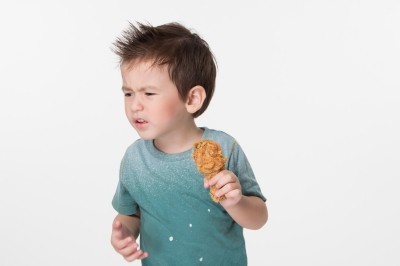They found children at more junky sweets (like cookies) when the mothers encouraged them to eat to soothe emotions. These children gobbled more chocolate during the experimental situation compared to children whose mothers did not feed to manage emotions. Emotional overeating was especially observed during negative moods.
Conclusions: Children of mothers who use food for emotion regulation consume more junk foods in the absence of hunger than do children of mothers who use this feeding practice infrequently. Emotional overeating behavior may occur in the context of negative mood in children whose mothers use food for emotion regulation purposes.
Hmm… I wonder how these learned patterns in childhood translate to adult emotional overeating…
~Dr. Jill
Blissett J, Hayraft E, Farrow C: Inducing preschool children’s emotional
eating: Relations with parental feeding practices. American Journal of
Clinical Nutrition 2010;92:359-365.
More Reading: Teach Your Children Maternal Influences on Daughters' Restrained Eating Behavior
This study examined whether mothers' preoccupation with their own weight and eating was linked to daughters' restrained eating behavior.
More Reading: Teach Your Children Inducing preschool children's emotional eating: relations with parental feeding practices
Children's emotional eating is related to greater body mass index and a less-healthy diet, but little is known about the early development of this behavior.
Photo from freedigitalphotos.net
* These statements have not been evaluated by the Food and Drug Administration. The product mentioned in this article are not intended to diagnose, treat, cure, or prevent any disease. The information in this article is not intended to replace any recommendations or relationship with your physician. Please review references sited at end of article for scientific support of any claims made.



















Share: